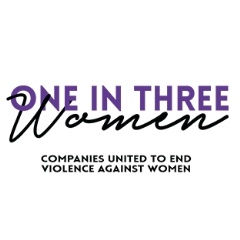“Companies are the only places where the victims of domestic violence can speak freely” - Interview with Margaret Johnston-Clarke
Margaret Johnston-Clarke, Head of Global Diversity and Inclusion at L’Oréal, discusses the Group’s commitment to tackling domestic violence, as a report is published on the impact of this scourge on people’s careers in Europe.
In your view, why should companies get involved in the issue of domestic violence?
This is really a taboo subject, and the initial reaction when you raise it is to say that it’s to do with people’s personal lives – and therefore companies shouldn’t be involved. However, we know that women who are victims of domestic violence are often being cut off from their circle of friends, or their family, by their abusive partner. The woman becomes isolated, her movements are controlled and, in the end, the only place where she can talk freely to people is at work. And that makes it an ideal environment in which to provide help. So, it seems only logical to me that L’Oréal should get involved in this issue, having already worked so hard to provide gender equality and a workplace that is safe and inclusive.
At L’Oréal, what form does that involvement take?
In 2018, we decided to join Europe’s leading network of companies that are committed to combating violence against women, which has been created by two foundations – Action Against Exclusion (FACE) and Kering: OneInThreeWomen. Joining this network has enabled us to carry out a vast survey on the impact of such violence on people’s daily work. Some 40,000 employees from six companies – L’Oréal, Kering, BNP Paribas, OuiCare, Carrefour and Korian -- were interviewed in six countries, including France. We have also started to make our employees aware at different levels of the organization, including managers, social assistants, nurses and occupational physicians, so that everyone understands what is at stake and what steps need to be taken. Finally, along with the other companies in the network, we have produced a guide for each country, providing details of the main groups and charities to contact when help is needed.
What did you learn from the survey published last week?
That we are dealing with a real issue. No fewer than 16% of women and 4% of men reported having current or previous experience of domestic violence. The fact that this research was carried out in the first place was very well received internally and we have had a lot of anonymous feedback from our employees. People are glad that the subject is being looked at. Sadly, the survey revealed that there are victims within all of our teams. The work, which was led by four female researchers, also enabled us to measure the impact of this violence on the victim, and his or her team, in terms of their effectiveness at work, absenteeism, etc.
What action has been taken?
With the other companies in the network, we agreed a plan of work and published a number of recommendations. For example, through the Solidarity Purchasing program, we are working with service providers that are willing to hire people who are victims of domestic violence. We are already doing this in France and Italy, and we want to extend it to other countries as well. We are also going to keep training our employees, with the support of the NGO, Women’s Aids.
What is the aim of this training course?
It’s a non-mandatory module lasting 3 hours. It’s delivered to small groups of about 20 people by an expert from the NGO, who presents case studies and allows a lot of time for discussion among participants. In no way is it designed to teach employees about how to deal with the problem. We just want to make people aware of this reality and able to recognize some of the key signals, so they can guide a victim to a source of help.
Why is right for the Group to be involved with this cause?
As a company, we have always been involved with society, and the local area. For example, last spring year in the Le Monde newspaper, we published a call for domestic violence to be included in a convention being prepared by the International Labour Organization (ILO). In all modesty, we believe that we can set an example, as an international Group. We can test things and then roll them out on a larger scale. Personally, I find it unacceptable that such violence is still being inflicted in 2019. I think that companies, both private and public, have a duty to make people aware of this issue, because many traumatic events could be attenuated or avoided altogether by giving our employees the confidence to talk about it -- and to look for external help.
( Press Release Image: https://photos.webwire.com/prmedia/6/250711/250711-1.jpg )
WebWireID250711
This news content was configured by WebWire editorial staff. Linking is permitted.
News Release Distribution and Press Release Distribution Services Provided by WebWire.
